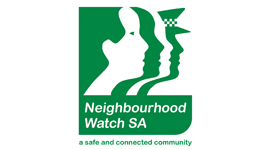Police call for assistance scam vigilance
28 Aug 2025 9:01am
On day four of Scams Awareness Week, South Australia Police (SAPOL) is calling for older community members to be wary of assistance scams.
SAPOL is continuing to see an increase of remote access scams, particularly through unsolicited phone calls from scammers pretending to be from well-known businesses or government departments.
Assistance scams refer to a wide variety of scams where assistance is offered and help to an unknowing victim. These may include:
- Pop-up scams
- Tech support
- NBN impersonation
- Unsolicited payments
- Scam recovery companies.
“In each example, the victim will receive a call, text message, email or pop-up stating that something is wrong and that they can assist the victim in repairing what has occurred,” Cybercrime Sergeant David Mitchell said.
“Examples of this include such things as removing a virus from a computer or fixing internet speed.
“The scammer may push you into buying unnecessary software or a service to ‘fix’ the computer or ask you for your personal details, including your bank or credit card.
“The scammer may initially sound professional and knowledgeable, however, they will be persistent and may become abusive if you don't do what they ask.”
Looking at remote access data alone, in 2024 South Australians lost more than $629,000 across 525 scams, and in Australia overall more than $7.5 million was lost to 6755 scams.
So far this year South Australians have lost more than $558,000 across 154 scams, with men 65 and over the main victims. In Australia overall more than $2.4 million has already been lost across 1623 scams, however 54 per cent of victims are female.
“Never give an unsolicited caller remote access to your computer or share personal details,” Sergeant Mitchell added.
“If you receive a random call about your computer and remote access is requested – hang up – even if they mention a well-known company.”
Red flags:
- Unsolicited texts, emails, or calls advising of an issue that you were unaware of.
- Requests for you to download a program on your phone or PC to help you.
- Scammers ask you to transfer funds to keep your money safe.
- Pressure to act quickly to ensure you do not lose money.
- Claims untrustworthy employees are working at your banking institution.
- Scammers ask you not to tell your friends or family.
- They utilise emotions such as fear to switch off your rational mind, leading to impulsive decisions and missing red flags.
- Using complicated technical language which is confusing.
Tips to help keep you safe:
- Hang up and contact the organisation on a known, reputable number. Do NOT trust contact details given to you by the caller.
- Never download programs or applications at the request of someone over the phone.
- Remember that you can still receive scam calls from a private number. If in doubt, hang up and ring the organisation back on a known number.
- Do not be intimidated by technical language or pushy behaviour.
- Make sure your computer is protected and regularly updated with anti-virus and anti-spyware software. Conduct your own research first and only purchase software from a source that you know and trust.
- Enable multi-factor authentication (MFA) on your accounts where possible to ensure an extra layer of security.
- Never provide one-time passcodes (OTPs) to unknown callers.
- If you have been scammed, do not trust companies claiming to recover your funds. These are often the same people conducting the original scam.
Real-life example
After having technicians attend his street to fix low-hanging phone wires, Allen received a call from NBN asking if he was having slow internet speeds. Assuming the call was related to the attendance, Allen agreed to having his internet speed checked. He followed the caller’s instructions and downloaded a program called AnyDesk. The caller advised he would fix his speeds, and Allen could go about his day. A week later, Allen checked his bank accounts and noticed fraudulent transactions totalling almost $70,000. He contacted his bank and attended his local police station, but unfortunately the money was unable to be recovered.
Report:
- If you have suffered harm or loss because of a scam, make a report at www.cyber.gov.au/report or attend your local police station.
Support:
- Talk to friends and family.
- eSafety Commissioner – www.esafety.gov.au
- Victims of Crime SA – www.voc.sa.gov.au
- Lifeline – 13 11 14 or www.lifeline.org.au
- Rebuild Victim Counselling – www.rasa.org.au

Have you been a victim of an assistance scam? Make a report to Report Cyber or attend your local police station to speak with an understanding police officer like Cybercrime Sergeant David Mitchell.

